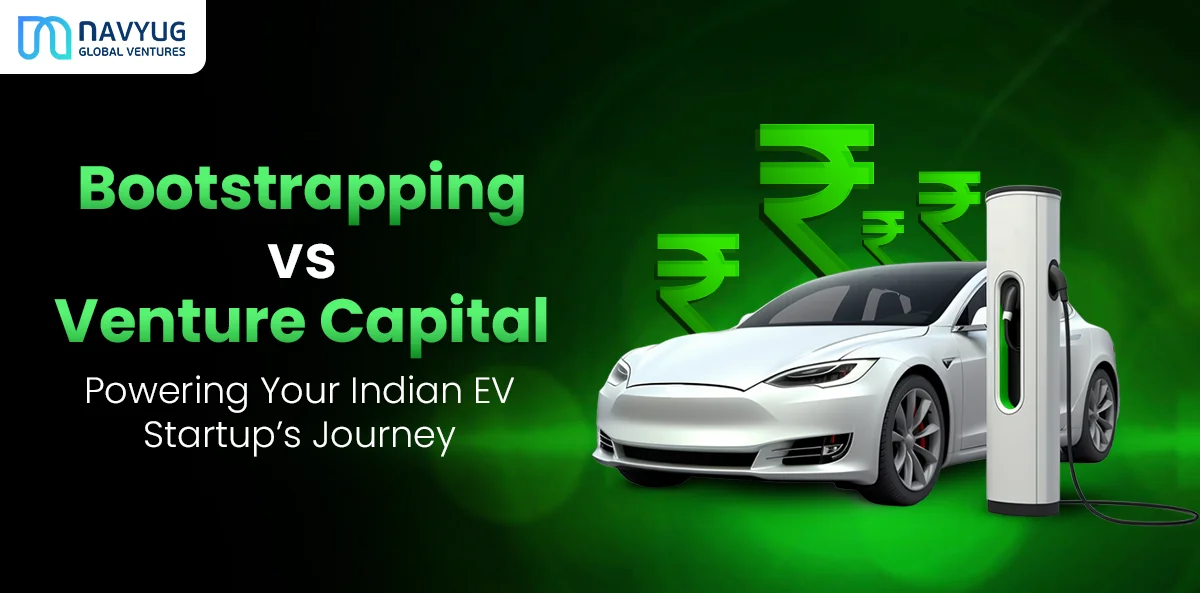Key Government Schemes for Startups India 2025
Government schemes for startups in India provide both financial and operational support to help new businesses innovate, grow, and overcome common early-stage challenges. These initiatives aim to facilitate entrepreneurs in launching, sustaining, and scaling their ventures more effectively.
Startup India Scheme 2025
The Startup India Scheme remains one of the most influential government schemes for startups in India in 2025. Designed to foster innovation and entrepreneurship, the scheme focuses on building a startup-friendly environment with financial, legal, and structural support.
Tax Benefits and Exemptions
Eligible startups receive a 3-year income tax holiday along with exemptions on capital gains and investment under Section 54EE. These benefits ease financial strain and allow founders to channel more resources into growth and product development.
Simplified Compliance and Regulatory Norms
Startups can self-certify under labor and environmental laws and access faster patent application processes. The scheme also offers easy exit under the Insolvency and Bankruptcy Code, reducing red tape for startups looking to pivot or wind up.
Mentorship and Networking Support
Recognized startups get access to a nationwide network of incubators, accelerators, and venture capital networks. This connectivity helps entrepreneurs refine business models, find early partners, and explore VC funding opportunities.
Support for Innovation and Incubation
The scheme strengthens the innovation ecosystem by funding tech hubs and approved incubators. Startups can apply through the Startup India portal and work closely with government-accredited institutions to access labs, tools, and training.
Startup India continues to be a cornerstone among government funding schemes for startups in India, providing a strong base for long-term growth.
MUDRA Loan Scheme
The Pradhan Mantri MUDRA Yojana (PMMY) is one of the most accessible government loan schemes for startups in India, especially for micro and small businesses. It provides financial assistance without collateral, helping founders start or expand their ventures with ease.
Diverse Loan Categories
Loans under PMMY are structured in three categories:
- Shishu (Up to ₹50,000) for early-stage businesses
- Kishore (₹50,001–₹5 lakh) for growing operations
- Tarun (₹5–₹10 lakh) for established enterprises needing expansion capital
(figures taken from this source)
Simple Application and Wide Reach
Loans can be availed through public sector banks, regional rural banks, NBFCs, and microfinance institutions. The process requires minimal paperwork and caters to businesses in services, manufacturing, and trading sectors across urban and rural India.
Flexible Repayment and No Collateral
The scheme offers flexible repayment terms up to 5–7 years, and no security is required for loans up to ₹10 lakh (source).This makes it a preferred option for startups seeking seed capital or working capital.
As a foundational tool for early-stage entrepreneurs, the MUDRA scheme plays a critical role in startup seed funding across India.
Prime Minister’s Employment Generation Programme (PMEGP)
The PMEGP Scheme is aimed at fostering self-employment and entrepreneurship, particularly in rural and semi-urban areas. It is one of the key Indian startup grants that blends financial assistance with employment generation.
Subsidized Financial Support
Startups can receive up to ₹50 lakh (manufacturing) or ₹20 lakh (services) as project funding. The government offers a subsidy ranging from 15% to 35% (source), based on category and location, helping reduce the initial capital burden.
Focus on Skill Building and Training
Before availing funding, applicants must complete an Entrepreneurship Development Program (EDP), equipping them with basic business management skills. This is particularly useful for first-time founders from underrepresented regions.
Inclusive Eligibility and Business Flexibility
Open to individuals above 18 years of age, SHGs, cooperatives, and institutions, PMEGP supports a wide range of businesses, from traditional crafts and food processing to service enterprises.
PMEGP aligns with various government schemes for startups in India by combining funding, skill development, and a rural focus to boost grassroots entrepreneurship.
Other Important Government Schemes for Startups in India
Apart from the key flagship initiatives, several other government schemes for startups in India 2025 continue to provide essential support for emerging businesses across sectors.
Startup India Seed Fund Scheme (SISFS)
Launched by DPIIT, this scheme offers early-stage startups funding of up to ₹50 lakh for developing prototypes and entering the market (source). It addresses the seed-stage capital gap and is managed through government-approved incubators across India. Startups must be DPIIT-recognized and less than two years old to apply.
Atal Innovation Mission (AIM)
AIM is an umbrella program under NITI Aayog that promotes innovation and entrepreneurship through Atal Tinkering Labs in schools and Atal Incubation Centres for startups. It offers funding support for R&D, product commercialization, and ecosystem development. AIM has helped thousands of startups access labs, mentorship, and early traction.
SAMRIDH Scheme
The SAMRIDH scheme by MeitY offers growth-stage, post-revenue startups equity support of up to ₹40 lakh through approved accelerators (source). It is aimed at startups looking to scale operations, enter new markets, and attract private investors. This scheme supports both capital and market access.
Multiplier Grants Scheme (MGS)
MGS encourages collaboration between industry and academia by offering matched grants to commercialize R&D innovations. It boosts tech-led ventures and supports product development in electronics, IT, and engineering startups. MGS is especially valuable for startups working with research institutions.
SIDBI Fund of Funds (FFS)
Under the Startup India initiative, SIDBI operates a ₹10,000 crore fund that co-invests with SEBI-registered venture capital funds (source). This model helps channel venture capital for Indian startups, increasing access to equity financing through indirect government support. Over 1,100 startups have benefited through this route.
SIDBI Direct Funding
In addition to the Fund of Funds model, SIDBI also directly invests in promising startups through equity or quasi-equity instruments. This route is ideal for scalable, innovation-driven companies seeking growth-stage capital and industry expertise.
CGTMSE Scheme
The Credit Guarantee Fund Trust for Micro and Small Enterprises offers collateral-free loan guarantees up to ₹5 crore (source). It enables startups to access formal credit without offering security, making it a preferred government loan scheme for startups in India seeking debt funding through banks and NBFCs.
Production Linked Incentive (PLI) Schemes
PLI schemes provide financial incentives based on incremental production in sectors like electronics, pharma, and textiles. Startups engaged in manufacturing benefit from direct cash payouts, helping them scale production and contribute to India’s self-reliance goals.
Stand-Up India Scheme
This scheme promotes inclusive entrepreneurship by offering loans between ₹10 lakh and ₹1 crore to women and SC/ST entrepreneurs. It supports greenfield projects and provides comprehensive handholding support for business planning and execution (source).
Eligibility Criteria for Government Schemes for Startups in India 2025
When exploring government schemes for startups in India 2025, it’s important to understand the eligibility terms before applying. Each scheme has distinct objectives and is tailored to different stages of a startup’s lifecycle, ranging from idea-stage funding to manufacturing and employment support. The table below summarizes the eligibility criteria of key initiatives, helping you identify the most suitable option for your business needs.
| Scheme | Eligibility Criteria |
|---|---|
| Startup India Scheme 2025 | • Registered as a Private Ltd, LLP, or Partnership • Less than 10 years old • Annual turnover under ₹100 crore • Focused on innovation or technology-driven solutions |
| MUDRA Loan Scheme | • Micro/small businesses in non-corporate, non-farm sectors • Viable business model • No collateral required for loans up to ₹10 lakh |
| PMEGP (Prime Minister’s Employment Generation Programme) | • Indian citizen aged 18+ • New project (not for expanding existing units) • Minimum Class 8 pass (for high-value projects) • Emphasis on rural and semi-urban applicants |
| Startup India Seed Fund Scheme (SISFS) | • DPIIT-recognized startup • Less than 2 years old • No prior funding from other government schemes • Working on PoC/MVP with market potential |
| Atal Innovation Mission (AIM) | • Startups working with Atal Incubation Centres or under ANIC • Education institutions with approved labs • Projects involving R&D or commercialization |
| SAMRIDH Scheme | • Growth-stage (post-revenue) startups • Minimum 51% Indian ownership • Backed by a MeitY-approved accelerator |
How to Apply for Government Funding Schemes
Applying for government funding for startups in India requires careful planning and proper documentation. Here’s a step-by-step guide to help you approach the process with clarity and confidence.
1. Review Scheme Guidelines
Start by identifying which government schemes for startups in India 2025 best match your business model and stage. Go through the eligibility criteria, benefits, and documentation listed on the official websites. This step helps you select the most relevant funding opportunity for your startup.
2. Prepare a Solid Business Plan
A well-structured business plan is crucial for approval. It should include your business objective, product or service overview, market analysis, financial estimates, and growth roadmap. A detailed plan not only clarifies your vision but also improves the credibility of your application.
3. Gather Required Documents
Collect the essential paperwork such as your company registration, PAN, Aadhaar, bank statements, financials, and DPIIT recognition (if applicable). Having these documents organized in advance can speed up the process and reduce back-and-forth.
4. Submit via Official Portals
Most schemes have dedicated government portals like Startup India, SIDBI, or MSME websites where applications can be submitted online. Make sure to fill in accurate information, upload the required files, and review everything before final submission.
5. Consider Expert Guidance
If the application feels complex or time-consuming, you can consult professionals or agencies that specialize in startup funding in India. They can assist with documentation, eligibility checks, and application writing.
Following this structured process can improve your chances of receiving startup seed funding, venture capital funds, or government loans for startups depending on the scheme you choose.
Empowering Startups in 2025- How Navyug Global Helps Founders in their Startup Success
India’s startup ecosystem is evolving rapidly, and 2025 brings with it a range of powerful government schemes for startups aimed at supporting innovation, job creation, and business growth. From tax incentives under Startup India to collateral-free loans via MUDRA and PMEGP, there’s a program for nearly every stage of a startup’s journey.
But identifying the right scheme, preparing investor-grade documentation, and submitting a successful application can often be complex.
That’s where Navyug Global comes in.
At Navyug, we work closely with early-stage and growth-stage founders to help them:
- Understand & Match with the Right Schemes
We decode eligibility and benefits so you can confidently choose the program that aligns with your business goals. - Build Funding-Ready Business Plans & Financials
From pitch decks to financial projections, we prepare everything you need for government grants or VC funding. - Connect You to the Right People
We leverage our network to introduce you to incubators, accelerators, and funding bodies that can unlock growth opportunities.
With Navyug by your side, you’re not just applying for a scheme, you’re preparing for long-term success. Whether you’re seeking startup seed funding, venture capital funds, or tailored guidance, we help you move forward faster and more confidently.




